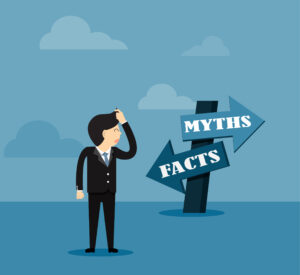Charitable Donations May Avoid Capital Gains Tax

Charitable Donations May Avoid Capital Gains Tax
Charitable donations may avoid capital gains tax if structured properly. Many family offices choose to be engaged in philanthropy at some level. Unfortunately, selling stocks and other securities in order to make a charitable donation often results in the need to pay capital gains tax. One way to further benefit the charity and avoid paying capital gains tax is to transfer ownership of an appreciated stock directly to a charitable organization[1].
For example, if you thinking of selling $100,000 worth of stock to make a charitable donation, you could either sell the stock and donate cash, or donate the stock directly to the organization.
Should you decide to sell $100,000 of stock and donate the cash proceeds, you must first determine how much capital gain you will accrue from the sale. If you originally bought your stock for $20,000 and your capital gain’s tax rate is 30%, you would have an $80,000 gain, of which, you would owe a 30% tax of $24,000. After paying your tax bill, you’d effectively have $76,000 left of your original $100,000 to donate to the charitable organization.
Or, you can consider the second option: donating stock directly to the charitable organization. If you donate your stock worth $100,000 directly to the charity, (assuming you’ve held the stock for more than one year), there would be no sale and therefore, no capital gain to be taxed. Donating stock instead of cash would result in the charity receiving an additional $24,000. Not only would the charity receive more, they’d also receive it in the form of stock, which can increase in value, pay dividends, etc.
While this seems like a great way to skirt the tax man, we recommend speaking to your tax advisor before making any kind of donation of stock or other liquid assets. There are certain exceptions to this rule which may limit your deduction such as the type of asset you are donating or whether the charity is qualified as determined by the IRS.[2]
Selecting the right type of asset to donate is also important. You should avoid donating stocks if their sale would result in a capital loss. Donating a stock that currently has a fair market value lower than its basis may cause you to miss out on offsetting other capital gains with a capital loss.
Section 1202 stock, also known as qualified small business stock, is another asset that you should avoid transferring to charitable organizations. Qualified small business stock (QSBS) is a special provision in the tax code that rewards investors for investing their money in early stage companies. If the stock is held for more than 5 years, 100% of the first $10 million of gain is taxed at an effective rate of 0%. That means it’s tax free! The tax-free gain is a strong reason to choose to donate another appreciated stock over QSBS.
If you have any questions on charitable donation tax strategies or if you’re in need of objective tax and family office advice (we never sell investments), please consider contacting us here at Info@GROCO.com. Or, visit our website at www.GROCO.com to learn more about us. Unfortunately, we no longer give advice to other tax professionals gratis.
We hope you found this article about charitable donations may avoid capital gains tax helpful. We encourage philanthropy and other worthwhile social endeavors whenever we can.
To receive our free newsletter, contact us here.
Subscribe to our YouTube Channel for more updates.
Very considerately yours,
The GROCO, GROCO Tax, GROCO Technology, GROCO Advisory Services, GROCO Consulting Services, GROCO Relationship Services, GROCO Consulting/Advisory Services, GROCO Family Office Wealth, and GROCO Family Office Services teams.
[1] https://www.irs.gov/publications/p526
[2] https://www.irs.gov/publications/p526
Tax Benefits of Owning a Home
Tax Benefits of Owning a Home Deducting mortgage interest In most cases, you can fully deduct your mortgage interest secured by your primary or secondary home. Beginning in 1987, mortgage interest to buy, build, or improve your home (acquisition debt) up to $1,000,000 or home equity loans up to $100,000 became tax deductible. Points (also known…
Popular Tax Credits for First-Time Homebuyers, Students and Those With Childcare
Popular Tax Credits for First-Time Homebuyers, Students and Those With Childcare By Victor Omelczenko 1/26/2009 Whether you’re looking to lower your tax bill or increase your refund, these IRS tips can help your bottom line. Tax credits can help pay the cost of raising a family, going to college, saving for retirement or getting day…
Profit From Your Children
Profit From Your Children Profit from your children? Making maximum use of your dependents can help slash your taxes significantly. “Dependents” generally mean your kids, but many of these gambits also work with low-income parents you might be assisting financially — even if they aren’t your dependents. Here are a few to consider. Hire your…
Myths About Trusts
Myths About Trusts Trusts are a dependable way to arrange for the management of family funds. Yet even financially sophisticated people settle for less satisfactory alternatives. Lack of knowledge isn’t the problem. It’s the assorted myths about trusts handed down over the years. Myth #1. Only the very rich use trusts. Because what the superrich…


